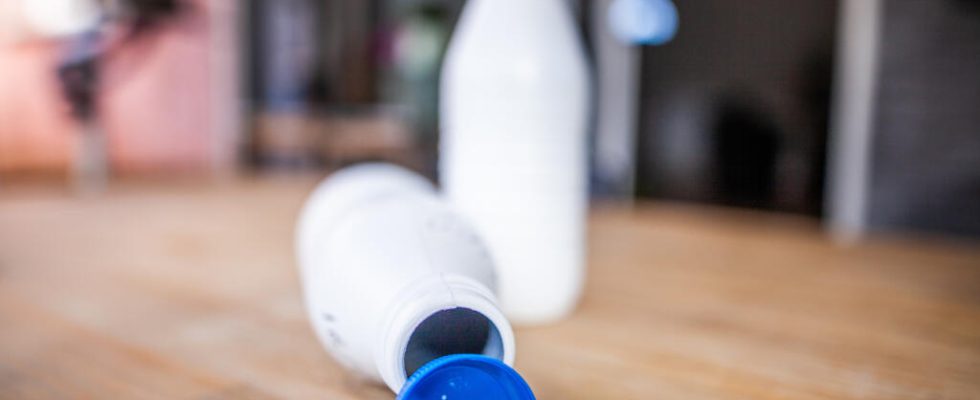Four new industrial channels are now in place to improve the recycling of household plastic packaging. Only one in three types of packaging is recycled today.
Yoghurt pots, milk or water bottles, packaging films for pasta and biscuits: four new industrial channels are now in place to improve the recycling of plastic household packaging, which is capped at 30% in France.
After the polystyrene recycling sector for yogurt pots, announced at the end of 2022, Citeo, the company with a mission responsible for managing household waste, announced on Friday morning the winners of calls for projects for the recycling of three other plastic resins, so far very little or not at all recycled in the country, including Paprec and TotalEnergies.
These are opaque white PET (polyethylene terephthalate), used in milk bottles, colored transparent PET used for certain water bottles, red or green in particular, and flexible packaging in the form of PE/PP plastic film. (polyethylene and polypropylene) used for packages of pasta or cookies and freezer bags.
“ We’ll soon come full circle by remaking food contact plastic from food contact plastic, said Jean Hornain, CEO of Citeo, presenting the results of calls for tenders launched by the company to the press.
France late
A final call for tenders for the recycling of trays and boxes is to be announced. in the coming months “, specified Mr. Hornain.
Only 65% of household packaging plastics have recycling channels in France, with the 35% remaining unresolved so far, he said. “ Our goal is to find solutions for 100% of them by 2025. »
This should allow France to improve its poor performance in plastic recycling, and to approach the objectives set by the European Union, i.e. 50% recycling of plastic packaging by 2025, and 55% in 2029.
For the recycling of milk bottles, of which 6,000 tonnes are placed on the French market each year, Citeo has chosen two companies: Paprec in Limay (Yvelines) and NorPalPlast associated with ValorPlast in Lesquin (Nord).
The objective is to process 3,000 tonnes of it by 2025 using traditional mechanical recycling techniques allowing a return to food contact, Citeo said. Clearly, bottles of milk would become bottles of milk again.
For colored PET plastic water bottles, of which 70,000 tonnes are put on the market each year, Citeo has entrusted three companies with recycling them: Paprec in Limay (Yvelines) for 60% of the tonnage, Suez in Bayonne (Pyrénées-Atlantiques) for 20%, and Valorplast in Lesquin (Nord) for 20%.
Six to nine year contracts
There too, it is a question of developing mechanical recycling technologies allowing a return to food contact, thanks in particular to upstream sorting processes, with the aim of processing 33,000 tonnes in 2025. Until now, the bottles recycled colors were mainly transformed into fibres.
Finally, for PE/PP plastic films, the largest deposit of the three, estimated at 150,000 tonnes per year, Citeo has selected three companies, combining mechanical and chemical recycling techniques. The goal is to recycle 33,000 tonnes per year by 2025.
Citeo has selected the Machaon company in Châlon-en Champagne (Marne), which will install a pyrolysis unit (chemical recycling) for 50% of the volume affected by Citeo.
Paprec and TotalEnergies will receive 30% of the bales of sorted waste and will work together on the GrandPuits plant (Seine-et-Marne), the first ensuring the preparation of the material, while the second will build a pyrolysis unit. The Belgian Indaver located in Antwerp will recycle by chemical pyrolysis for the remaining 20%.
The contracts, from six to nine years depending on the company, guarantee them access to the deposits at the exit of the sorting centers in France, and start ” from today said Sophie Génier, director of recycling services at Citeo.
In December, Citeo also announced the companies selected to recycle polystyrene packaging, of which 100,000 tonnes are put on the market each year (including 60,000 tonnes of yoghurt pots). The two winners are Eslava Plasticos in Spain (mechanical recycling) and the Plastic2Chemicals factory of the Belgian group Indaver in Antwerp.
(AFP)
► Read also: The export of plastic waste, another threat to the oceans
► To listen again: It’s not windy! : Plastic: it’s overflowing!
